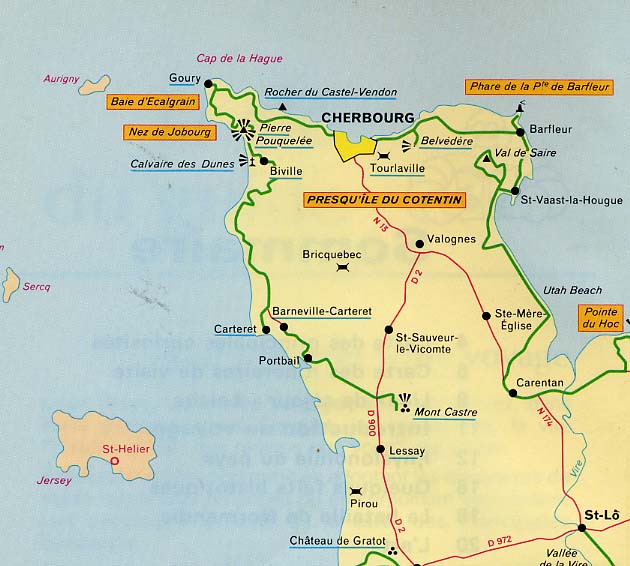As Walloon is a version of French, sneered at of course, he should have understood me. I could have tried Flemish but apparently old Norse should have sufficed.
There's an interesting discussion on the etymology of Etretat on a French wiki site. Most of it contradictory but this bit is perhaps pertinent as it involves the physical structure of the place and its relationship with 'stacks'.
'Jean Renaud est le seul a donner une version radicalement différente de l'étymologie du lieu. Le second élément serait issu du vieux norrois stakkr « rocher élevé, en mer » bien attesté près des établissements vikings : stakk aux Shetland, stac aux Hébrides, et que l'on retrouve sur la côte du Cotentin sous la forme état, comme l'État à Chausey ou l'État, rocher au large de Jobourg (cf. stack). Le premier élément serait peut-être le vieux norrois stútr utilisé dans le sens de « dressé, projeté ». Selon lui, le nom a dû s'appliquer à la fameuse aiguille d'Étretat : le « rocher dressé »39'
The word 'needle' once more makes its appearance as in the south west of England and the far north east of Scotland.
It is also close to Le Havre which seems to be on a direct line with the Isle of Wight. If these arches were indeed artificial perhaps they are markers for sailors who recognise they are getting close to their destination?
Is 'Wight' related to 'Wig, Wick, Uig etc'? As in Wigton, Wigtown, Wick and so on?
The Romans knew it as Vectis so the pronunciation seems to have been set at least as far back as them if not before.
As for the Alabaster bit, that seems rather like good old Albion of the perfidious type.
I hope Boreades doesn't mind all this gabble while he's in the pub leaving his blog unattended.
I came across a 'learned' article which I've downloaded in pdf format regarding old legends etc of Etretat. I'll get my Walloon dictionary out and have a go at it.
http://gallica.bnf.fr/ark:/12148/bpt6k379770b


